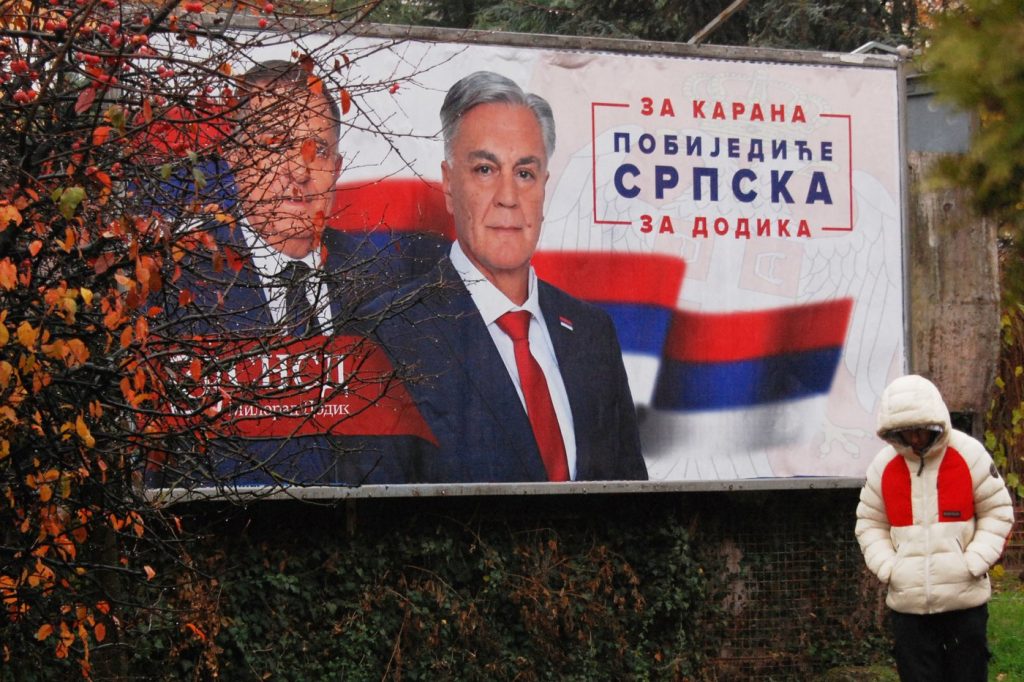SARAJEVO, Bosnia-Herzegovina (AP) – Voters in the Serb-run region of Bosnia headed to the polls on Sunday to elect a new president following the ousting of former pro-Russian leader Milorad Dodik. His removal was prompted by separatist policies that had been contributing to the instability in this ethnically diverse Balkan nation.
Dodik was dismissed from office in August after a court in Bosnia found him guilty of disobeying orders from the international High Representative for Bosnia. He received a one-year prison sentence and was subsequently banned from holding any public office. To avoid imprisonment, Dodik paid a fine and stepped down from his presidential role, although he continues to lead his party, the Party of Independent Social Democrats.
The snap election sees Sinisa Karan, a candidate supported by Dodik, competing against Branko Blanusa, a university professor and representative of the opposing Serb Democratic Party. While there are four other candidates, they are not considered to be strong contenders in the race. Blanusa, after voting in Banja Luka, remarked that the election campaign had unfolded in a “fair and tolerant atmosphere” and expressed hope for a similarly peaceful election day, urging over 1.2 million Bosnian Serb voters to participate.
The political framework of Bosnia divides the country into two entities: Republika Srpska, governed by Bosnian Serbs, and a joint administration held by Bosniaks, predominantly Muslim, and Croats. This complex political system was put in place 30 years ago as a result of a U.S.-brokered peace agreement that aimed to end the devastating ethnic conflict from 1992 to 1995, which resulted in over 100,000 fatalities and left millions displaced.
The war ignited following Bosnia’s declaration of independence from Yugoslavia. The Serbs within Bosnia reacted by seeking to create their own territory with aspirations of joining neighboring Serbia. Throughout his political career, Dodik has advocated for the separation of the Serb-controlled entity from Bosnia, denouncing the country as “unviable.”
Due to his contentious policies, Dodik faced sanctions from both the United States and the United Kingdom. However, these sanctions were lifted last month after he agreed to resign, a move which was also seen as a way to mitigate tensions within the region. Dodik has had a tumultuous relationship with Christian Schmidt, the international envoy overseeing the efforts to maintain peace, frequently labeling his decisions as illegal within Republika Srpska.
Despite his removal, Dodik remains actively involved in Karan’s election campaign. He assured supporters that he would continue to “fight for our political goals” and stated, “Karan’s victory will be my victory too.” This shows his determination to maintain influence in the Serb political landscape even after being ousted from the presidency.










